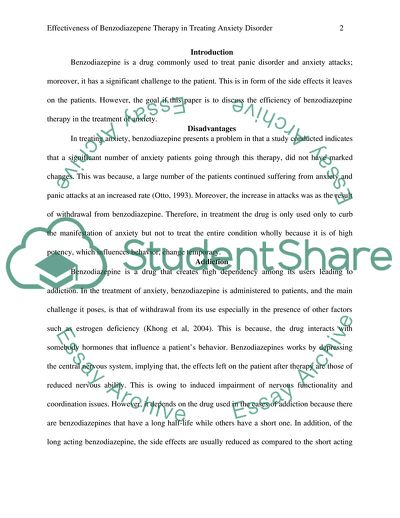Cite this document
(Effectiveness of Benzodiazepene Therapy in Treating Anxiety Disorder Research Paper, n.d.)
Effectiveness of Benzodiazepene Therapy in Treating Anxiety Disorder Research Paper. https://studentshare.org/medical-science/1778242-benzodiazepine-treats-panic-disorder-and-anxiety-attacks
Effectiveness of Benzodiazepene Therapy in Treating Anxiety Disorder Research Paper. https://studentshare.org/medical-science/1778242-benzodiazepine-treats-panic-disorder-and-anxiety-attacks
(Effectiveness of Benzodiazepene Therapy in Treating Anxiety Disorder Research Paper)
Effectiveness of Benzodiazepene Therapy in Treating Anxiety Disorder Research Paper. https://studentshare.org/medical-science/1778242-benzodiazepine-treats-panic-disorder-and-anxiety-attacks.
Effectiveness of Benzodiazepene Therapy in Treating Anxiety Disorder Research Paper. https://studentshare.org/medical-science/1778242-benzodiazepine-treats-panic-disorder-and-anxiety-attacks.
“Effectiveness of Benzodiazepene Therapy in Treating Anxiety Disorder Research Paper”. https://studentshare.org/medical-science/1778242-benzodiazepine-treats-panic-disorder-and-anxiety-attacks.


